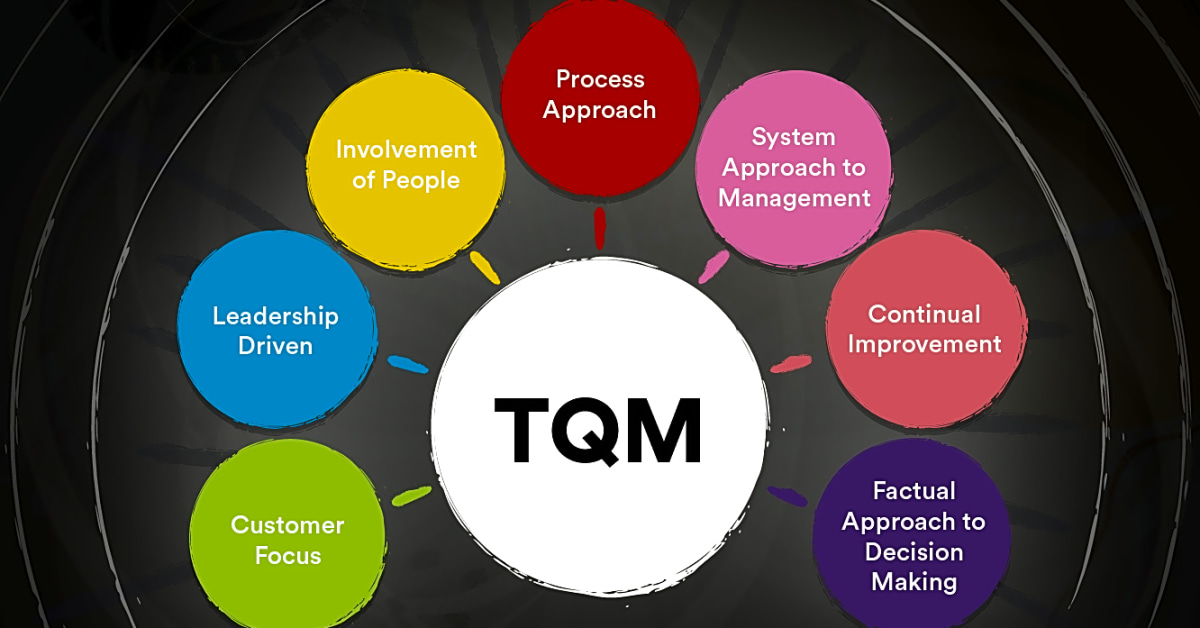In today’s fast-paced business world, maintaining consistency and quality in processes is crucial for the success of any organization. Operational leaders play a critical role in ensuring that processes are efficient, effective, and adhere to industry standards. However, with the constant changes and advancements in technology, it can be challenging to keep processes consistent and maintain high-quality standards. This guide aims to provide operational leaders with practical strategies and tips for ensuring consistency and quality in processes, ultimately leading to improved performance and customer satisfaction. Whether you are in the field of process improvement or quality control and assurance, this article will provide valuable insights and best practices for achieving excellence in your organization’s processes. So let’s dive into the world of process consistency and quality and learn how to elevate your operations to the next level.
To start, let’s dive into the key aspects of operational leadership that are crucial for ensuring consistency and quality in processes. These include effective communication, problem solving, decision making, and team building. It is important to have open lines of communication with your team to ensure everyone is on the same page and understands their roles and responsibilities. This also helps identify any issues or areas for improvement in processes.
As a leader, you should also be skilled in problem solving and decision making, as these are essential for addressing any challenges that may arise in processes. This requires being able to analyze and assess situations, gather information, and make informed and timely decisions. As processes can often be complex and involve multiple stakeholders, having strong problem solving and decision making skills is crucial for ensuring consistency and quality.
In addition to communication and problem solving, team building is also a key aspect of operational leadership when it comes to maintaining consistency and quality in processes. Building a strong and cohesive team is essential for achieving success in any organization. This can be achieved through various team building activities, such as team building workshops or retreats, as well as fostering a positive work culture where collaboration and teamwork are encouraged.
As an operational leader, it is also important to recognize and utilize the strengths of each team member. This not only helps to build a more efficient and effective team, but also creates a sense of value and empowerment among team members. By acknowledging and utilizing the unique skills and abilities of each individual, you can create a stronger and more united team that is dedicated to achieving consistency and quality in processes.
In conclusion, as an operational leader, it is your responsibility to ensure consistency and quality in processes within your organization. This requires effective communication, problem solving, decision making, and team building skills. By fostering open communication, addressing challenges with problem solving techniques, and building a strong and cohesive team, you can successfully ensure consistency and quality in processes and become a better leader in your business operations.
Problem Solving and Decision Making
As an operational leader, you are faced with challenges and decisions on a daily basis. It is important to have effective strategies in place to address these challenges and make informed decisions for the benefit of your organization.
One strategy for problem solving is the use of root cause analysis. This involves identifying the underlying causes of a problem rather than just treating the symptoms. By identifying and addressing the root cause, you can prevent the same problem from occurring in the future.
Another useful strategy is brainstorming. This involves gathering your team together and generating a list of potential solutions for a problem. By involving your team, you can get different perspectives and come up with creative solutions.
When it comes to decision making, it is important to gather all relevant information and weigh the pros and cons of each option. This allows you to make an informed decision that takes into account all potential outcomes.
Additionally, seeking input from your team can also help in decision making. They may have valuable insights or ideas that you may not have considered. This not only fosters a collaborative work environment, but also leads to better decisions.
Team Building
Creating a strong and cohesive team is crucial for ensuring consistency and quality in processes within your organization. As an operational leader, it is important to understand the dynamics of your team and how they work together. Here are some tips to help you build a successful team:
- Communication is key: Open and effective communication is essential for any team to function well. Encourage open dialogue among team members and provide opportunities for everyone to share their thoughts and ideas.
- Establish clear roles and responsibilities: Clearly define the roles and responsibilities of each team member to avoid confusion and promote accountability.
- Encourage collaboration: Foster a collaborative environment where team members can work together and share their skills and expertise. This will not only improve the quality of work, but also build a stronger team dynamic.
- Recognize and appreciate: Take the time to recognize and appreciate the hard work and contributions of your team members. This will boost morale and motivate them to continue performing at their best.
By implementing these tips, you can create a strong and cohesive team that is committed to ensuring consistency and quality in processes. As a leader, it is your responsibility to nurture and support your team, as they are the backbone of your organization’s success.
Effective Communication
Effective communication is a crucial component in ensuring consistency and quality in processes within an organization. As an operational leader, it is your responsibility to establish open lines of communication between yourself and your team members. This not only allows for a better understanding of processes and expectations, but also fosters a positive work environment where team members feel heard and valued.
In order to effectively communicate with your team members, it is important to establish a culture of open communication. This can be achieved by encouraging team members to share their thoughts, ideas, and concerns without fear of judgement or retribution. Additionally, as a leader, it is important to actively listen to your team members and address any issues or challenges that may arise.
Another important aspect of effective communication is providing timely and clear feedback. This not only helps team members understand their performance and how it contributes to the overall process, but also allows for continuous improvement and growth. As an operational leader, it is important to provide both positive reinforcement and constructive criticism in a respectful and professional manner.
Effective communication also involves setting clear expectations and goals for team members. By clearly defining roles, responsibilities, and objectives, team members will have a better understanding of their role in the process and be able to work towards a common goal. This also allows for accountability and ensures that everyone is working towards the same end result.
In summary, open lines of communication between leaders and team members are essential for ensuring consistency and quality in processes. By fostering a culture of open communication, providing timely feedback, and setting clear expectations, operational leaders can effectively manage their team and improve overall performance in their organization.
In conclusion, operational leaders play a vital role in ensuring consistency and quality in processes within their organizations. By utilizing effective communication, problem solving and decision making skills, and promoting team building, leaders can improve efficiency and performance while creating a positive work environment. Remember, consistency and quality in processes are key to the success of any organization.







